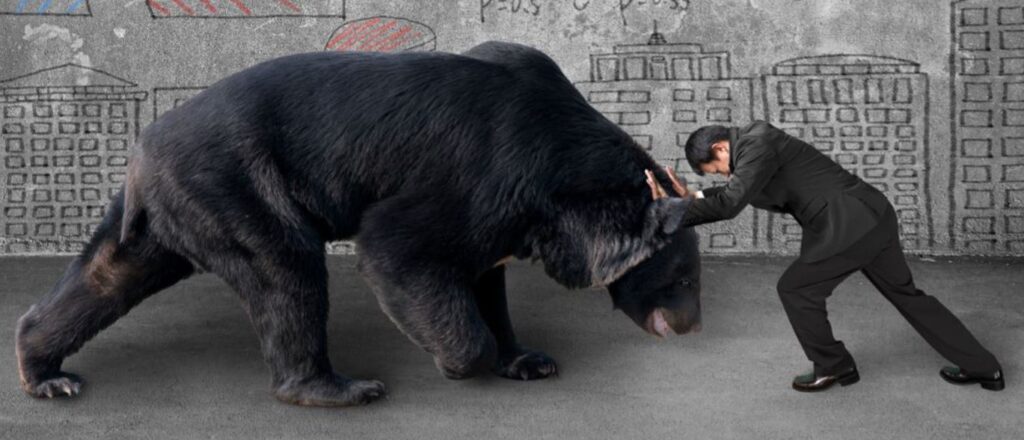No matter what kind of work you do, you likely take a break for coffee or lunch. This is a time when you catch a casual moment with your colleagues. Although this moment is meant to break the monotony of the day, it is not uncommon for your mind to keep going back to the intricately complex interactions you may have had with your clients or customers; or patients if you are a health care provider.
When your job is to deal with death and dying on a daily basis, the gravity of the thoughts can be stronger. I was having one such conversation with a friend, mentor and remarkable human being Dr. Saad Jamshed, who now has about two decades of clinical experience. I asked him to put pen to paper and write a guest article for my blog. I hope you enjoy reading it as much as I did:
Bravery shows its face in so many different ways. The Merriam-Webster dictionary defines Bravery as “the quality or state of having or showing mental or moral strength to face danger, fear, or difficulty.”

Let me tell you about Paul. I met him for the first time in his hospital room, on a Friday afternoon. As I reviewed his medical chart, I found out that before this hospitalization he was in excellent health and was at the top of his game in every way, be it work or family life. However, by the time of my visit with him, he had been in the hospital for five long weeks and had developed debilitating weakness requiring two medically trained assistants to help him sit up. He had an ongoing infection and blood clots. He was in a hyper-inflamed state that got out of control every time we reduced his steroids, and if that was not enough, he was now facing a life-threatening blood cancer.
This day, we had canceled his discharge to a coveted bed in an acute rehabilitation facility, which these days is like a feat by itself, like finding a diamond. When I walked in, Paul was in his bed, and his wife and a few other family members including his mother were at the bedside. We talked about his diagnosis, what we knew at that time, and what was under investigation. What stood out to me was that he was upbeat, and had a “let’s-do-it” attitude. I thought to myself that he might be in denial, which is not uncommon considering the situation.
I saw him the following day thinking that his energy may have died down but yet again found him to be very positive. After I discussed the customary medical stuff, we chatted. I told him that I was impressed by his attitude and coping skills. He said, “Doc, I know the situation is bad and I am not in control of what is happening to me but there is no other way to deal with this situation other than taking it head-on with one thing I still control, my attitude”.
Despite this being a busy day for me, I found myself losing track of time conversing with this brave man. Although he was the one facing multiple medical issues, he wanted to know more deeply about me as a person and a physician. I found myself giving voice to my own thoughts and emotions as if I knew him for a long time. “Health care, lately, has faced unprecedented challenges, leading to hardship and burnout. Despite what some may think, it has affected doctors too. We are humans after all. There are quite a few things that keep me going and help me in dealing with burnout and other stressors. I try to find motivation wherever I can, and I also try to adopt skills that allow for self-improvement.”
I have noticed that as we get older, we at times forget the skills that have helped us in our journey. As we spoke more about life, I shared with him how I sometimes like to think about my life in decades. I then went to explain what I meant.
In our first decade of life, we learn at an exponential pace – standing, walking, talking. We go beyond our comfort zone, we try new things, and we are trusting of those who are around us including our parents, family, and teachers.
In the second decade, our body goes through changes, we give unconditional love, we start saying “no,” we are more self-aware, we are becoming grown-ups, and look forward to milestones. We evaluate the value of things and how they self-benefit.
What I have adapted, on advice from Kevin Casey is that instead of saying “no”, I say “yes”. Here’s an example. At the end of a long day, when my son comes over and asks me to play, my reply is “Yes, I would love to play but let me finish my homework or I had a tough day at work and need a few minutes to compose myself. I will join you right after.” This allows me to convey that I care about them and cherish time with them, instead of conveying that at that time they are not important.
In our third decade, we start to settle down, we are on a path of growth. We are physically the strongest and have a vision, and goals and are focused on achieving them. The fourth decade brings prosperity in what we have invested in, others look up to you, you are at the peak of your power, and you are a go-to person, dependable and reliable.

During our fifth decade, we start consolidating power, children start settling down, and we continue to contribute to society. We start looking for “me” time. The sixth decade brings some physical weakness, health issues start catching up, and we try to maintain our value at home and workplace. We become talkers, using words to politely do the work. Storytelling, and reflecting on our highs (“those were the days”) come with the seventh decade. We remain stubborn and strong in our independence. We get more vulnerable in our eighth decade but are then willing to seek assistance.
After my long speech I said, “Paul, I try to observe what is happening around me, reflect on my day regularly. Recent impactful observations at work have been teaching skills of Mehul P; word choice and clear headedness of Farhan I; walking databanks of Peter K and Maria S, leadership and task completion skills of Prad P, James W and Heather B; situational awareness and calmness of Trudy A. If I can absorb a fraction of those skills, I may be a different person. Maybe someday I can learn to be brave like you. Try to be an inspiration to others, and become a storyteller.” I thanked him for listening to me.
Now close to three months in the hospital, he and his wife reminded me of our initial conversation about the phases of life. I told them that I was struggling to write about our conversation and closing was especially challenging. They thanked me for having that conversation and how impactful it was to them both. Paul was discharged the same day to acute rehab with plans for continuing treatment and transplant hoping for a long-term cure.
April 23, 2023


V nice!
Paul reminds me of someone I knew…
Rightly said “clear headedness” and “word choice” of Farhan S Imran!
All his articles are meticulously written with strong vocabulary and sentence fluency.As he’s a passionate reader,inquisitive researcher&diligent observer who pays special attention to even tiny details.
Every single articles has a strong voice and a reader can visualise himself in the actual situation
Thank you so much for sharing your experiences. You are both very talented!
👍
You are an inspiration, Dr Saad Jamshed!
I love this: “What I have adapted, on advice from Kevin Casey is that instead of saying “no”, I say “yes”. Here’s an example. At the end of a long day, when my son comes over and asks me to play, my reply is “Yes, I would love to play but let me finish my homework or I had a tough day at work and need a few minutes to compose myself. I will join you right after.” This allows me to convey that I care about them and cherish time with them, instead of conveying that at that time they are not important.”